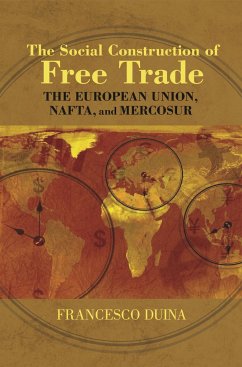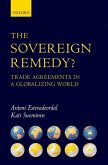"In this pathbreaking book, Francesco Duina smartly challenges conventional wisdom on globalization, contrasting economic visions of integration with social understandings of how markets work. By comparing three different regional trade agreements, the book provides exceptional insight into how global models are adopted and vary around the world. The case studies on the standardization of reality are original and refreshing, and the book's rigorous analysis of law will be compelling reading for scholars, practitioners, and policymakers."--John K. Glenn, Director of Foreign Policy, German Marshall Fund of the United States "The Social Construction of Free Trade is a brilliant book that is poised to be a classic. It contains an astonishing amount of empirical material and a striking methodology, stands alone in comparing the three markets in question, possesses original ideas, is powerfully informed theoretically, and is beautifully written."--John A. Hall, McGill University, coauthor of Is America Breaking Apart? "This is a very important and well-written book. It argues, contrary to much of the current literature, that transnational regional markets did not arise naturally or spontaneously. Nor did they converge on a common model. Instead, they were socially constructed through a process of political bargaining, struggle, and negotiation. To my knowledge, this is the first book that compares the development of different regional markets. It is a must read for sociologists, political scientists, economists, and others who are interested in globalization, comparative political economy, economic sociology, and how regional markets are created and operate." --John Campbell, Dartmouth College, author of Institutional Change and Globalization








